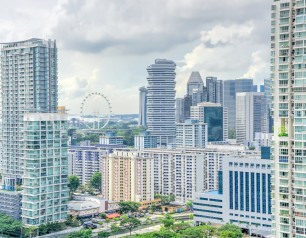Renting vs. Buying Property in Singapore: Which Option is Right for You?
Choosing between renting and buying a property in Singapore is a significant decision that requires careful consideration. With Singapore's thriving real estate market, it's crucial to weigh the pros and cons of each option to determine the best fit for your circumstances, preferences, and long-term goals. In this article, we will explore the key factors to consider when deciding whether to rent or buy a property in Singapore.
Renting Property in Singapore:
Renting offers certain advantages that cater to specific needs and lifestyles. Here are some key points to consider:
- Flexibility and Mobility: Renting provides the flexibility to adapt to changing circumstances. It suits individuals with unpredictable lifestyles or short-term commitments, allowing them to easily change residences or relocate when needed.
- Lower Upfront Costs: Compared to buying a property, renting generally requires a smaller upfront financial commitment. There is no need to provide a hefty down payment or cover additional expenses like lawyer fees, buyer's stamp duties etc. This makes renting a more affordable option for those with limited savings or a desire to minimize initial costs.
- Maintenance and Responsibilities: When you rent a property, the landlord is typically responsible for property maintenance and repairs. This alleviates the burden of upkeep and related expenses, giving you peace of mind and saving you time and effort.
Buying a property also presents numerous advantages, particularly for those looking for long-term stability and potential financial gains. Consider the following points when evaluating the option to buy:
- Long-Term Investment: Owning a property can be a sound long-term investment. Over time, properties in Singapore have shown a history of steady growth and appreciation. This can contribute to building equity and potentially increasing your wealth.
- Stability and Security: Homeownership provides stability and a sense of security. You have a place to call your own without concerns about lease renewals or potential changes in rental prices. This stability is particularly beneficial for individuals or families looking for a long-term residence or a stable base.
- Personalization and Customization: One of the significant advantages of owning a property is the freedom to personalize and modify it to your liking. You have the flexibility to create a living space that reflects your style and preferences, allowing you to truly make it your home.
Financial Considerations:
When making a decision between renting and buying, several financial factors come into play. Here's what you need to consider:
- Affordability:
Evaluate your financial situation to determine whether you can afford the upfront costs of buying a property, including the down payment, monthly mortgage payments, buyer’s stamp duty, and property tax and maintenance expenses. Take into account your income, existing financial commitments, and the regulations set by financial institutions regarding loan eligibility.
- Return on Investment:
Buying a property presents the potential for capital appreciation over time. However, it's important to conduct thorough research and assess the market conditions in your desired location. Factors such as infrastructure development, government initiatives, and proximity to amenities can influence property values.
- Rental Costs vs. Mortgage Payments:
Compare the cost implications of renting versus buying. Research average rental prices in your desired area and compare them with the monthly mortgage payments you would need to make. Consider interest rates, loan tenure, and your estimated duration of stay. In some cases, homeownership may offer comparable or even lower monthly costs than renting, making it a financially viable option.
Lifestyle and Future Plans:
Your lifestyle and future goals should also guide your decision-making process. Consider the following:
- Duration of Stay:
If you expect to live in Singapore for a short period or have uncertain plans, renting provides the flexibility to adapt to changes more easily. However, if you plan to settle down in Singapore for the long term, buying a property can offer stability and eliminate concerns about lease renewals or rental market fluctuations.
- Financial Goals:
Evaluate whether owning a property aligns with your broader financial goals. Property ownership can contribute to building assets and accumulating wealth over time. However, it's essential to weigh the risks and consider potential market fluctuations.
- Flexibility vs. Stability:
Renting offers flexibility, allowing you to adapt to changing circumstances. On the other hand, owning a property provides stability and security, allowing you to personalize your space and create a long-term home.
Conclusion:
Deciding between renting and buying a property in Singapore requires careful consideration of various factors. Assess your financial situation, research the real estate market, and evaluate your lifestyle and future plans. Seek advice from real estate professionals and financial advisors to gain valuable insights tailored to your specific circumstances. Remember, the right choice ultimately depends on what aligns with your needs, goals, and aspirations in Singapore's dynamic property market.



